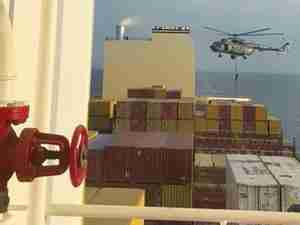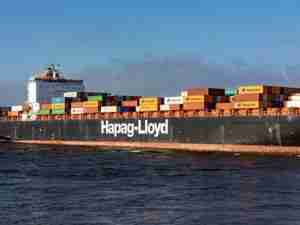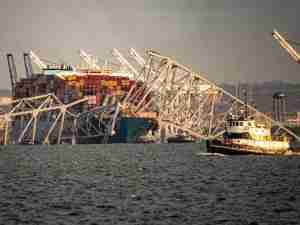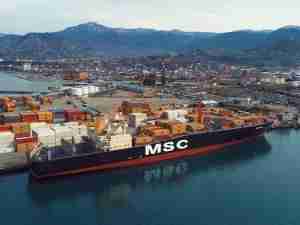The group's Maersk Line is the world's biggest container shipping company and is sometimes seen as a barometer of world trade, which remains depressed in early 2010.
Analysts said the new guidance was disappointing, and Maersk shares initially slid as much as 6.7 percent before trimming losses to 3.9 percent by 1400 GMT, lagging a 0.8 percent fall in the Copenhagen bluechip index.
Chief Executive Nils Smedegaard Andersen said the container shipping business would remain in the red this year though other Maersk operations -- from oil and gas to offshore services, port terminals and supermarkets -- would continue to perform well.
"We are not guaranteeing that we will be back in the black in 2010, but at the moment it is our strong ambition and expectation to deliver a profit this year," he told Reuters.
"Priority No. 1 is to return to profit," he told analysts in a conference call after A.P. Moller-Maersk reported a 2009 net loss of 5.49 billion Danish crowns ($1.01 billion) in 2009 against a profit of 17.53 billion in 2008.
"The main factors driving (2009 results) down of course were low rates in containers and in tankers as well as a significant drop in the oil price -- these were really the negatives of last year," Andersen said.
More Losses for Maersk Line
"We do not expect the container line to be back in profits in 2010," Andersen told Reuters. "Rates have improved but they are still not at a level where they can give acceptable profitability."
"To have a healthy upswing we need not just positive figures from Asia but also the consumer in U.S. and Europe to pick up more goods, and we are not really seeing anything to support that at the moment," Andersen said.
Freight rates for the group's container ships were 28 percent lower than in 2008, Maersk said in a statement.
Container shipping rates have returned to January 2009 levels but bunker fuel costs have risen, Andersen said.
"The competition in container shipping has been fierce for the last years," he told Reuters. "Last year it (competition) led the industry to lose $20-30 billion, so it was more than fierce, it was almost suicidal."
Maersk's report followed 2009 losses from rivals including Korea's Hanjin Shipping and Singapore-listed Neptune Orient . Major unlisted rivals include Mediterranean Shipping Company (MSC) of Switzerland and France's CMA CGM.
Despite the losses, Andersen said that the group could be satisfied with its achievement of reducing costs by about $2 billion in 2009, leaving it with cashflow from operations of $4.7 billion, which he called "pretty strong."
Maersk would continue to focus on costs and efficiency this year, though the effect would be lower than in 2009, he said.
The container shipping division incurred an operating loss of 10.06 billion crowns, while Maersk's oil and gas business made an operating profit of 25.33 billion crowns. (Reuters)









